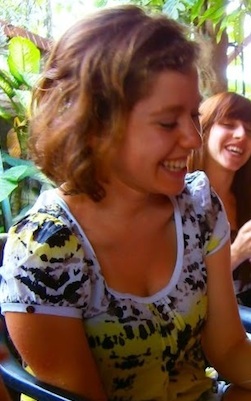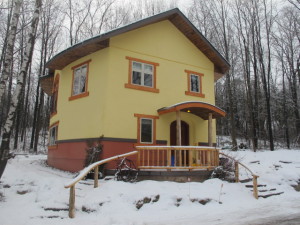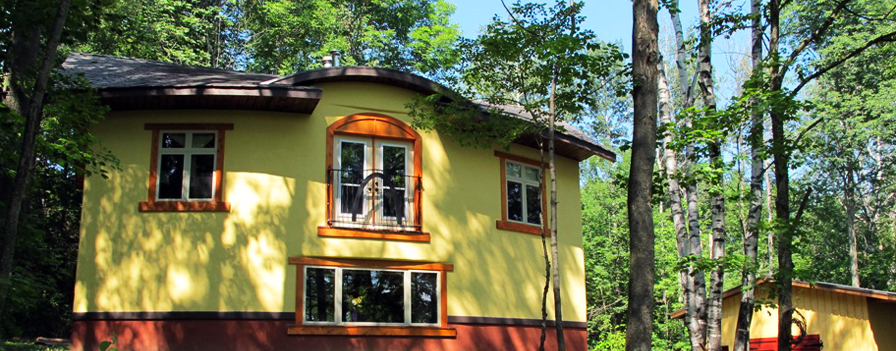
Ingrid Cryn begins her talk about homesteading and sustainable living in the countryside by describing what events led her to this moment. Over a decade ago, she experienced a health crisis that turned her life upside down. Her body had become sensitive to many environmental allergens, intolerant to foods, and both her mind and body were left weakened and exhausted from it all. Her journey to health in part comprised a complete rethinking and reworking of how she lived her everyday life, which eventually led to her moving to the countryside and learning how to live more wholly off the land. What is so amazing about this to me, why it resonates so fervently, is that that is almost exactly what happened to me.
This post is not about either of our journeys through health and lack thereof, but it is interesting that both of us are finding our ways back to health through similar means. When life is turned upside down, when grocery shopping takes on a new dimension of complexity, when even getting to the grocery store (or out of bed) becomes an event, one cannot continue living the same way as before. It is not only those components of our lives that got rethought, but it compelled a more holisitic perspective on how we were living. I am often reminded of a quote, which I’ll paraphrase here: stupidity is not in making a mistake, but in continually repeating the same behaviour and expecting a different outcome. In this case, Ingrid realized that the life she was living before became (or perhaps always was) toxic to her. She couldn’t just take a pill, or change her exercise regime–she had to change her life.

There are a myriad of ways for people to do this to varying degrees. Ingrid transitioned from urban to rural, downsized her house and material belongings, began growing some of her own food, experimented with different measures of preservation… she got closer to the earth on a physical and spiritual level.
What works for her might not work for everybody. I have been to many talks from people living such dramatically different lifestyles from my own that the connection from mine to theirs seemed an impossible leap. I can empathize with those who thought while listening to her talk (or reading this incredibly brief summary of it), “Well that’s great, BUT …” I can almost perfectly picture past-Maya listening to this talk and thinking to herself, “OK, that’s great for you, but what can I do from my apartment in Montreal?” or “from my parent’s condo?” I wanted–needed–to be a part of the sustainable movement, of the counter culture, but only to the extent that it fit within the main culture itself. Only to the extent that alternative lifestyle was accepted, and convenient for me. Which, as one can predict, becomes quickly self-limiting. Even writing this I am torn from two positions of thought. The aggressive voice is annoyed with the logic I just presented, with the plausibility that I could have it both ways: live a consumeristic life and just pick up whatever “sustainable” habits fit my lifestyle, without changing my lifestyle to be more sustainable as a whole. That voice is impatient for more change to be effected, for society to change it’s ways and take responsibility for the injured food system and crippled environment (to name a few of our injustices) we’ve created. The more compassionate voice understands that lasting change cannot be bullied, it cannot be forced. It must be felt, genuinely trusted, and wanted for it to make its way into a habit. That small actions become behaviours make changes.
But both sides are right in their own way. The world needs a rapid renovation on so many levels, yet it is even just logistically difficult to imagine enforcing certain personal policies. So where does that leave us? For some, it may mean moving somewhere new and experiencing a different way of being. For others, it might mean trying out Meatless Mondays and getting over their fear of tofu. Or something completely different altogether.
What is one way that you can bring a new element of sustainable living into your life?
What are some of the practices you already engage in?

